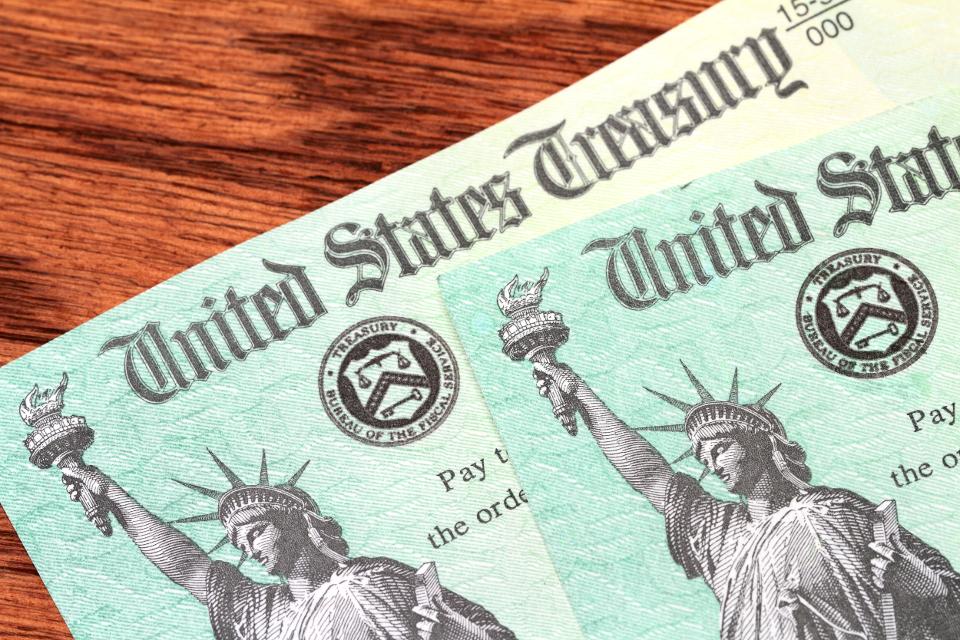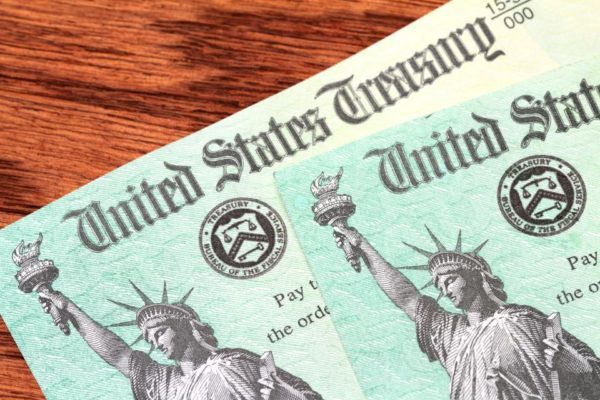
Want to know when your stimulus check will arrive?
Here’s what you need to know.
Stimulus Checks
For many Americans, stimulus checks will arrive soon. Treasury Secretary Steven Mnuchin has said most Americans will receive their stimulus check by April 17. Director of the U.S. National Economic Council Larry Kudlow said checks will start going out this week or next. According to The Washington Post, which has reviewed a timetable from the IRS, stimulus checks could be distributed as follows (of course, these dates are subject to change):
April 9, 2020
Stimulus checks could be sent to some taxpayers as early as Thursday, April 9. If you filed your income taxes in 2018 or 2019 and provided your direct deposit information to the IRS, your stimulus check could be sent today. Estimated arrival time in your bank account could be on or before April 14, 2020.
April 24, 2020
The IRS will begin sending paper stimulus checks. The plan is to send paper stimulus checks to taxpayers with the lowest adjusted gross income first. Therefore, taxpayers who earned less than $10,000 will receive a paper check first.Today In: Personal Finance
May 1, 2020
This week, the IRS will send paper stimulus checks to taxpayers who earned between $10,001 and $20,000.
May 8, 2020
This week, the IRS will send paper stimulus checks to taxpayers who earned between $20,001 and $30,000.
May – September 2020
From May through September, the IRS will continue to send paper checks in order from lowest income to highest income based on 2018 or 2019 tax information.
September 4, 2020
The IRS will mail any remaining checks, such as to married couples making $198,000 (the maximum joint income that is eligible to receive a stimulus check).
September 11, 2020
The IRS will send checks to those who didn’t provide contact information to the IRS.
Can You Get Your Stimulus Check Sooner?
You may be able to get your stimulus check sooner (although no guarantees of course):
- Check if you qualify to receive a stimulus check.
- Direct Deposit Information: If you provided direct deposit information on your 2018 or 2019 income tax return, then the IRS already has your direct deposit information. How do you know if you provided your direct deposit information? If you paid federal income taxes online from your bank account or received a federal tax refund in your bank account, then you likely provided direct deposit information.
- File Taxes: If you haven’t filed 2018 or 2019 income taxes, you can still file them. Make sure to provide direct deposit deposit information to get your stimulus check faster.
- No Taxes, But Social Security: If you don’t file taxes, but you receive Social Security benefits, you don’t have to file any taxes to qualify. You’ll automatically receive a stimulus check.
- New IRS Portal: In late April or early May, according to the memo, the IRS expects to create an online portal that will enable taxpayers to update their direct deposit information and check the status of their stimulus check. For those who don’t file taxes, but who receive Social Security benefits, you can also update your direct deposit information once the online portal is available.
Stimulus Checks: Q&A
How much money can I get?
Individuals: $1,200
Married Couples: $2,400
Dependent Children: $500 (must be less than 17-years-old)
What are the income thresholds?
There is no minimum adjusted gross income threshold. However, the stimulus check amount phases out by $5 for every $100 above certain income levels based on your tax filing status:
- Single Filer: $75,000
- Head of Household: $112,500
- Married/Joint Filer: $150,000
At what income level will I not qualify for a stimulus check?
Single Filer: > $99,000- Joint Filer (no children): > $198,000
Helpful Resources
- Do you qualify for a stimulus check?
- When will my stimulus check arrive?
- How to apply for unemployment
- Here’s everything that’s happened to your student loans in 2 weeks
- How to pay your student loans during Coronavirus
- How to get financial relief for your student loans during Coronavirus
- How to get relief for your private student loans
- These companies are hiring despite Coronavirus
- What you need to know about paid sick leave during Coronavirus
- Do you qualify for paid sick leave?
- Full text of the CARES Act
- How to contact your student loan servicer
- Should you stop paying your student loans during Coronavirus?
- 5 ways to lower your student loan payments during Coronavirus
- Student loan refinancing rates are incredibly cheap
FORBES


Leave a Reply
You must be logged in to post a comment.